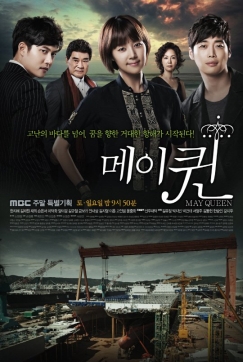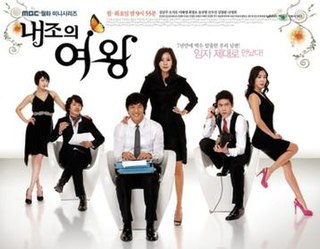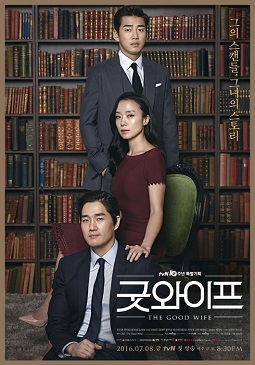
Blue Swallow is a 2005 South Korean film based on the true story of Park Kyung-won, an early Korean female pilot. The film became controversial when Park's alleged pro-Japanese activities came to light. It was also found that she was not, as the filmmakers had thought, the first female pilot from Korea; this distinction in fact belonged to Kwon Ki-ok of the Republic of China Air Force. Despite excellent reviews and Park's biographer pointing out factual errors in these accusations, it resulted in the under-performance of Blue Swallow at the box office.
Seoul Institute of the Arts (Korean: 서울예술대학교) is an arts university in Ansan, Gyeonggi Province, South Korea. The Namsan campus in Seoul is used for presentation of arts productions and convergence with industry. The Ansan Campus opened in 2001 and is used for educational training.
Jeong Jae-eun is a South Korean film director.

Heaven & Earth is a 2007 South Korean television series starring Park Hae-jin, Han Hyo-joo, Lee Joo-hyun, Kang Jung-hwa, and Hong Soo-ah. It aired on KBS1 from January 15 to August 31, 2007 on Mondays to Fridays at 20:25 for 165 episodes.

The Slave Hunters is a 2010 South Korean action historical drama set in the Joseon Dynasty about a slave hunter who is tracking down a general-turned-runaway slave as well as searching for the woman he loves. It aired on KBS2 from January 6 to March 25, 2010 on Wednesdays and Thursdays at 21:55 for 24 episodes.

Bedevilled is a 2010 South Korean horror film starring Seo Young-hee and Ji Sung-won. The film premiered as an official selection of Critics' Week at the 2010 Cannes Film Festival.
The Korea National Ballet is a South Korean ballet company. It was founded in 1962 in Seoul as the National Ballet Company. It was one of the affiliates of the National Theater of Korea until 1999, when it separated to independently reestablish itself in the Seoul Arts Center in the following year.

Dream High 2 is a 2012 South Korean television series starring Kang So-ra, Jeong Jin-woon, Jay B, Park Ji-yeon, Hyolyn, and Park Seo-joon. It aired on KBS2 from January 30 to March 20, 2012, every Monday and Tuesday at 22:00 (KST) for 16 episodes.

Doomsday Book is a 2012 South Korean science-fiction anthology film directed by Kim Jee-woon and Yim Pil-sung. It tells three unique stories of human self-destruction in the modern high-tech era, while displaying an alternative form of genuine humanity and compassion. A Brave New World is a political satire about a viral zombie outbreak; The Heavenly Creature philosophizes on whether a robot can achieve enlightenment; and in Happy Birthday a dysfunctional family bonds in the midst of an apocalypse.

May Queen (Korean: 메이퀸) is a 2012 South Korean melodrama series about three people who experience ambition, revenge, betrayal and love, against the backdrop of the shipbuilding industry in Ulsan during Korea's modernization. It stars Han Ji-hye, Kim Jaewon and Jae Hee.

Queen of Housewives is a 2009 South Korean romantic comedy television series, starring Kim Nam-joo, Oh Ji-ho, Yoon Sang-hyun, Lee Hye-young, Choi Cheol-ho, and Sunwoo Sun. It depicts the life of "naejo," housewives who devote their entire lives to their husbands' success, but with a more comedic and aggressive twist. It aired on MBC from March 16 to May 19, 2009 on Mondays and Tuesdays at 21:55 for 20 episodes.

Secret Affair is a 2014 South Korean television series starring Kim Hee-ae and Yoo Ah-in. It aired on cable channel JTBC from March 17 to May 13, 2014 on Mondays and Tuesdays at 21:50 (KST) for 16 episodes.

Quiz of God is a South Korean television series broadcast on cable channel OCN. It was the first medical/forensic crime investigation drama to air in Korea. The series follows genius but eccentric neurosurgeon and forensic doctor Han Jin-woo and his team as they solve suspicious deaths and unravel mysteries involving rare diseases.

SEOUL International Women's Film Festival is an annual film festival held in Seoul, South Korea. The first festival took place on April 1, 1997, which marked the second appearance of the international film festival in Korea following Busan International Film Festival launched in 1996. This was a time when there was not a clear idea on how to define a film festival. During this time, SEOUL International Women's Film Festival came up with the catchphrase "See The World Through Women's Eyes." This phrase set its main goal to introduce women's films that explore “women’s reality from the women’s perspectives.”

The Good Wife is a South Korean television series starring Jeon Do-yeon, Yoo Ji-tae and Yoon Kye-sang. It is a Korean drama remake of the American television series of the same title which aired on CBS from 2009 to 2016. It replaced Dear My Friends and aired on the cable network tvN every Fridays and Saturdays at 20:30 (KST) for 16 episodes from July 8 to August 27, 2016.

Graceful Friends is a South Korean television series starring Yoo Jun-sang, Song Yoon-ah, Bae Soo-bin, Han Eun-jung, Kim Sung-oh, Kim Hye-eun, Jung Suk-yong, Lee In-hye, Kim Won-hae and Kim Ji-young. It aired on JTBC from July 10 to September 5, 2020. It's available for streaming on Netflix and Disney+ in selected countries.













